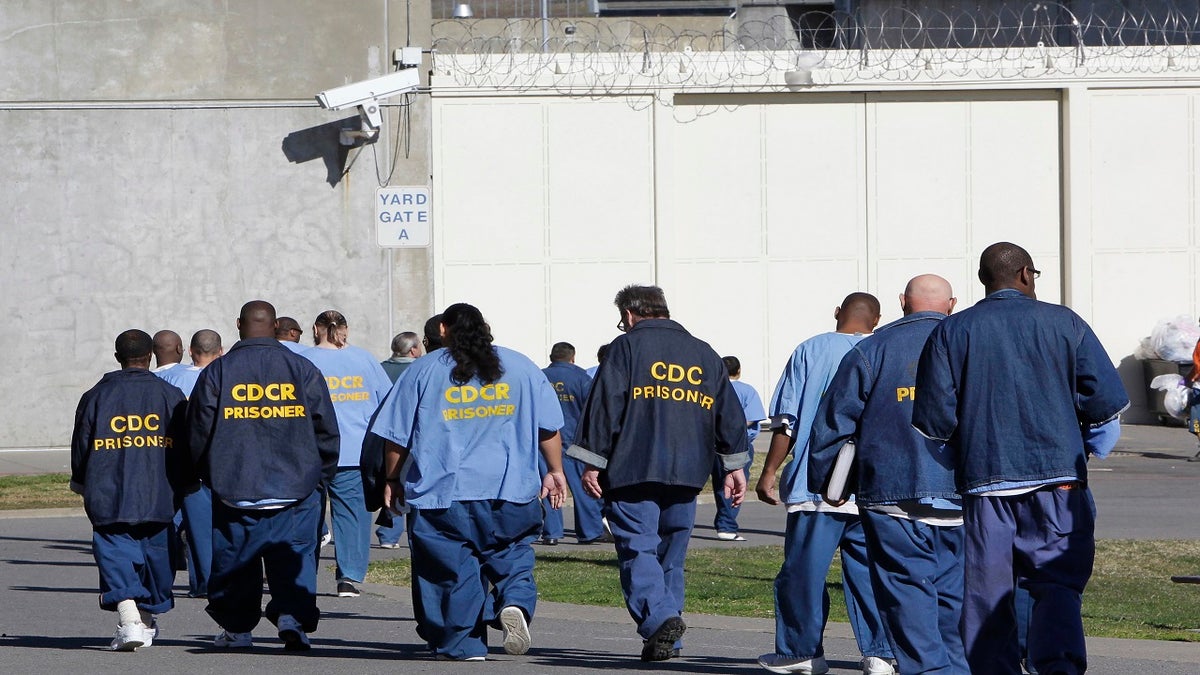Fox News Flash top headlines for December 29
Fox News Flash top headlines are here. Check out what's clicking on Foxnews.com.
California inmates convicted of nonviolent sex crimes may be eligible for early parole consideration as part of a ballot measure that nearly two-thirds of voters approved four years ago, the state's Supreme Court recently ruled.
The 2016 initiative was never intended to cover sex offenders, former California Gov. Jerry Brown, who championed the effort, has said. But lower courts ruled that the plain language of the initiative means they cannot be excluded from consideration as nonviolent offenders, and the high court agreed on Monday.
"The initiative’s language provides no indication that the voters intended to allow the (Corrections) Department to create a wholesale exclusion from parole consideration based on an inmate’s sex offense convictions when the inmate was convicted of a nonviolent felony," wrote Chief Justice Tani Cantil-Sakauye in the unanimous decision.
Under the ballot measure, officials can consider paroling inmates who have been convicted of nonviolent crimes after they have served their basic sentence and before they have completed their additional time for others factors, such as having previous criminal convictions or using a gun while committing the crime.
VIDEO CATCHES GRACE MILLANE’S KILLER CARRYING HER BODY IN SUITCASE
The high court ruled that "that nonviolent offender parole eligibility must be based on an inmate’s current conviction" and offenders cannot be excluded from consideration for what the state deems a nonviolent sex offense.

In this Feb. 26, 2013, file photo, inmates walk through the exercise yard at California State Prison Sacramento, near Folsom, Calif. The California Supreme Court ruled Monday, Dec. 28, 2020, that inmates convicted of what the state defines as nonviolent sex crimes cannot be denied a chance at earlier release under a ballot measure approved by nearly two-thirds of voters four years ago. (AP Photo/Rich Pedroncelli)
The measure "is not ambiguous concerning its scope regarding offenders who were previously convicted of a registerable sex offense or who are currently convicted of a registerable sex offense that the (Corrections) Department has itself defined as nonviolent," the justices ruled.
Under California law, violent sex offenses include rape, sodomy and continuous sexual abuse of a child. But the definition leaves out many other offenses, like pimping, incest, indecent exposure and possessing child pornography.
'CHEER' STAR JERRY HARRIS PLEADS NOT GUILTY TO FELONIES IN CHILD PORNOGRAPHY CASE
The ruling could allow parole consideration for about 20,000 inmates, said Sacramento attorney Janice Bellucci, who argued the case and also is executive director of the Alliance for Constitutional Sex Offense Laws. About half are now serving time for sex crimes while the other half are in prison for some other offense like burglary or drugs, yet were previously convicted of a sex crime.
But the court put the number much lower, based on the state corrections department’s earlier figures. While about 22,400 inmates were required to register for a sex offense based on a current or prior conviction, more than 18,000 were serving time for a violent offense. That left about 4,400 inmates.
Bellucci didn’t disagree with the lower figure but said the disparity may depend on how corrections officials define violent crime. Sometimes they have argued that all sex offenders are by definition violent, she said, while other times they have used the narrow definition in state law.
Corrections department spokeswoman Dana Simas echoed the high court’s emphasis that the decision does not necessarily mean sex offenders will be paroled.
Parole boards can still choose not to allow individual earlier releases, which the justices said leaves corrections officials "with ample room to protect public safety" without the broad prohibition the corrections department had argued was needed for sex offenders.
CLICK HERE FOR THE FOX NEWS APP
"The Board of Parole Hearings may consider an inmate’s prior or current sex offense convictions when evaluating the inmate’s suitability for parole," the justices said, but it may not deny "even the mere possibility of parole to an entire category" of inmates.
The ruling, Simas said, "will have no impact on the existing exclusion of individuals convicted of violent felony sex offenses from this parole process."
The Associated Press contributed to this report.






















